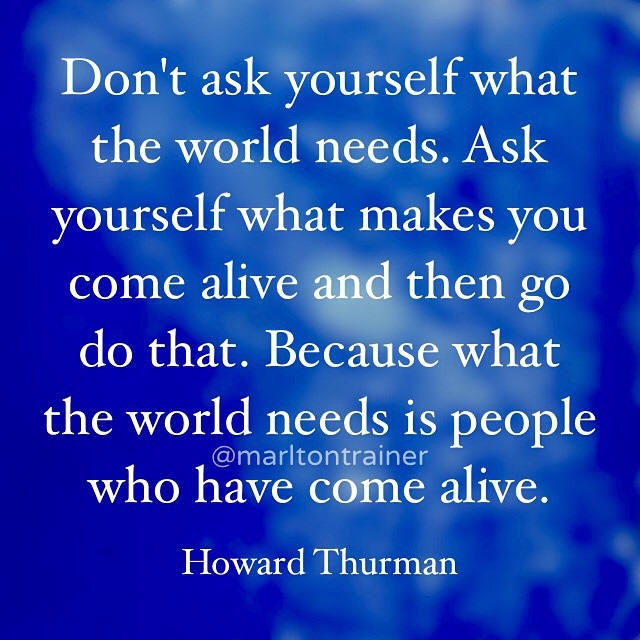There are so many experiences of work that are negative, and many that are positive. Sometimes we are so caught up in the tasks at hand, we don't notice how we feel about them at all. Here's a chance to step back away from the work you do and see it more clearly. First, consider what is work? (As a quick aside, did you know the counseling field developed from the work of career counselors in the early 20th century? Because of this, all of us who get an advanced degree in counseling must take an entire course on Career Counseling. In this course, we are asked to define work. It turns out to be a worthwhile question!) So work is... the hours of the day in which you are at your place of employment. Right? Or when you work at home? Like reading emails after hours? Or working in a home office? Or worrying about your day at the office tomorrow while you're trying to relax at home? Is that work? What about stay at home moms or caregivers for older family members? They aren't paid but they are working, aren't they? They do all their work at home, but it's still work right? What about doing chores on the weekends when you're "off" work. Don't chores still feel like work? What about volunteering? You're not getting paid, but it's still work, yes? Wow, ok, maybe it's not that easy to define work. After much reflection in Career Counseling 101, I came up with this conclusion...Work is any way in which we use our energy to accomplish a goal that will benefit both ourselves and others. Work is getting out of bed, making a meal, taking care of your children or your pets, doing your chores, going to your job, doing the tasks of your job, paying your bills, working out (notice how we use the word "work" here but for most of us, it isn't a job!) What do you think? The point is that sometimes our thinking about work is misleading, like it's a certain set of places or activities that are discretely different than the rest of life, when actually, it is in many ways inseparable. It may help to identify some of the elements of satisfaction or dissatisfaction at work. Then mark them on a scale like pictured here. Make a bunch of these lines and put a tally mark there on the line for each of the different elements we identified. You may be highly satisfied with some aspects of work and dissatisfied with others. Some of these elements may be more important than others, so take that into consideration, then you can rate your overall satisfaction with your work based on the elements that are most important to you. Now that you've isolated the aspects of your work that are good and not so good, take some time to ask yourself, how much of your evaluation of your work has to do with past work experiences? Think about your very first job in which you had absolutely no reference at all for how work is "supposed" to be? What was your evaluation of it? Likely, each of your work experiences has built upon one another to create a set of expectations in each of the above areas. It's useful to know which of your work experiences are the most powerful in how you evaluate your current situation. You may really miss a good boss you used to have, and now your current boss just can't live up to your expectation. You may have had a great salary at a previous job, and be carrying unresolved grief about losing it to your next job that doesn't pay as well. You may have had a past boss that was a real problem for you, so you might stay in an unfulfilling job with a great boss because you fear getting another horrible one. It's worth doing these tally marks with past jobs, to help you get some clarity on your perspective about your current job.
Finally, consider how you define success. Is it happiness? Wealth? Independence? Doing work that matters to you? Doing work that makes you "come alive"? Almost everyone's definition of success is tied up with their early childhood experiences at home and school. Those times when your parents or teachers were proud of you or disappointed with you. Those times when you grew into your own sense of success, independent of, or contrary to, what others thought. It's worth asking yourself this question, "Would the person who I respect most in my life think I am successful in this work?" If the answer if yes, you are likely to also consider yourself successful. If it's no, you may be longing for something fundamentally different in your work life. The key to defining success may the awareness that it's not a destination but a journey. And that successful moments happen all day every day, even when we don't notice them. Take a step back and see if you notice them. Also, let's not fool ourselves into believing that we need to "come alive" each and every day, all day long in our work in order to deem it "successful." The fact is that work is mundane by its very nature and there will be times, even in the best job, that we are bored and dissatisfied. That said, we are likely "coming alive" in our work at times without noticing it, and we can most likely simply do a better job of noticing. Here are some good resources for work-related issues:
Work concerns are some of the most common issues discussed in individual counseling. Reach out to a licensed professional today if you are struggling in your job. Comments are closed.
|
AuthorKambria Kennedy-Dominguez, LPC-S |
Phone: 972.755.9120 | Fax: 214.723.5345
533 W. 12th Street Dallas, TX 75208
Privacy Policy Good Faith Estimate
©Flourish Counseling and Consultation PLLC 2024
533 W. 12th Street Dallas, TX 75208
Privacy Policy Good Faith Estimate
©Flourish Counseling and Consultation PLLC 2024



 RSS Feed
RSS Feed
